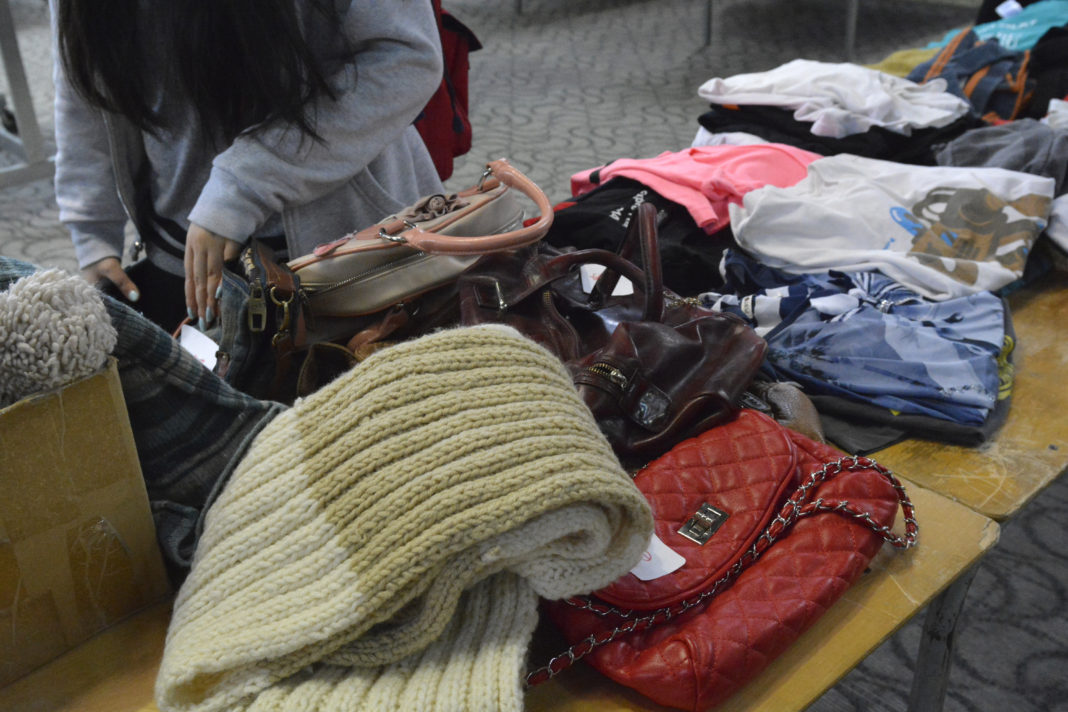Recently, Sustainable Campus Fashion held their third annual used-clothing sale from Sept. 25-26.
Kinjal Patel, project co-lead with Maggie Chang, spoke to Imprint on sustainable fashion, new homes for the unsold clothing, and goals for the project moving forwards – including an on-campus clothing store.
Q: What is sustainable fashion?
“Sustainable fashion means reducing and reusing the textiles that you’re wearing daily.
“It means making sure that the sources of your clothing are ethical and made from resource-conserving material.”
Q: How do you dress sustainably?
“There are a lot of used clothing stores like Salvation Army, Value Village, and so many other different [retailers]. But above all, it’s not just about wearing used clothing – it’s about making sure they’re ethically sourced as well.
“Tentree plants ten trees for every purchase of clothing.
“Also, you should do your research on which clothing shops are closest to you because you can cut your fuel emissions by shopping locally.”
Q: How did the clothing sale go this term?
“It went really well. We raised the [largest amount in a single term…since we’ve been doing this.
“In two days, we raised $1900.
“In terms of how much waste we diverted from textile factories, we recycled about 50 industrial sized garbage bags with the clothing. Each one those weighs around over 25 pounds.”
Q: What are you doing with the leftover clothing from the sale?
“What we try to do is give them a ‘third life’ after we’ve already tried to sell the used clothing.
“We try to divert the textiles from waste and recycling plants by giving a chance for charities to have it – one of the larger ones that we are trying to partner with is The Kidney Foundation.
“We choose an arbitrary half of what’s left over, which is quite a bit, and they will pick it up to give it to their patients to keep them warm or if they’re losing weight from their treatments.
“It’s a beautiful thing, and whatever they don’t have the capacity to take from us, we then make the effort to donate it so that will turn it into other clothing later.”
Q: Why should everyone dress sustainably and how does it impact them?
“First and foremost, it impacts them financially because if you dress more sustainably, odds are that the clothing is going to be a lot cheaper.
“So, you’re not really getting it at retail value but you can still get higher brand-named clothing if it’s something you’re really interested in.
“Secondly, it challenges you to be creative and innovative with the clothing that you’re wearing because if you’re working under a tight budget, you must figure out ways to stretch [the] limits of how much you’re willing to spend on clothing. It’s taking things like an old t-shirt and up-cycling it to make it look better, like adding fringes or rolling up the sleeves.
“It’s important for people to see that used clothing can still have an aesthetic appeal but it can also fit into your budget.”
Q: What is the end goal of this project?
“We’re trying to create a consignment shop to go on campus.
“We’ve been trying for the past three years to do that – the project just hasn’t picked up speed but every year it grows more and more.
“It has spread a lot of awareness and [increasingly] sustainable practices. All the clothing would be donated from students who leave the campus and don’t have the space to carry everything with them.
“The end goal is to educate people on what they can do in their daily lives in terms of sustainability.“
Q: Any last thoughts?
“Don’t be afraid to take risks with the clothing that you’re wearing.
“If you think that something is particularly off-trend or out of style or out of season, don’t worry about that so much.
“If you feel good in it and…feel that you look good in it, that’s the most important thing when you’re trying to feel confident in what you’re doing.
“It’s not about what anybody else thinks.”






























